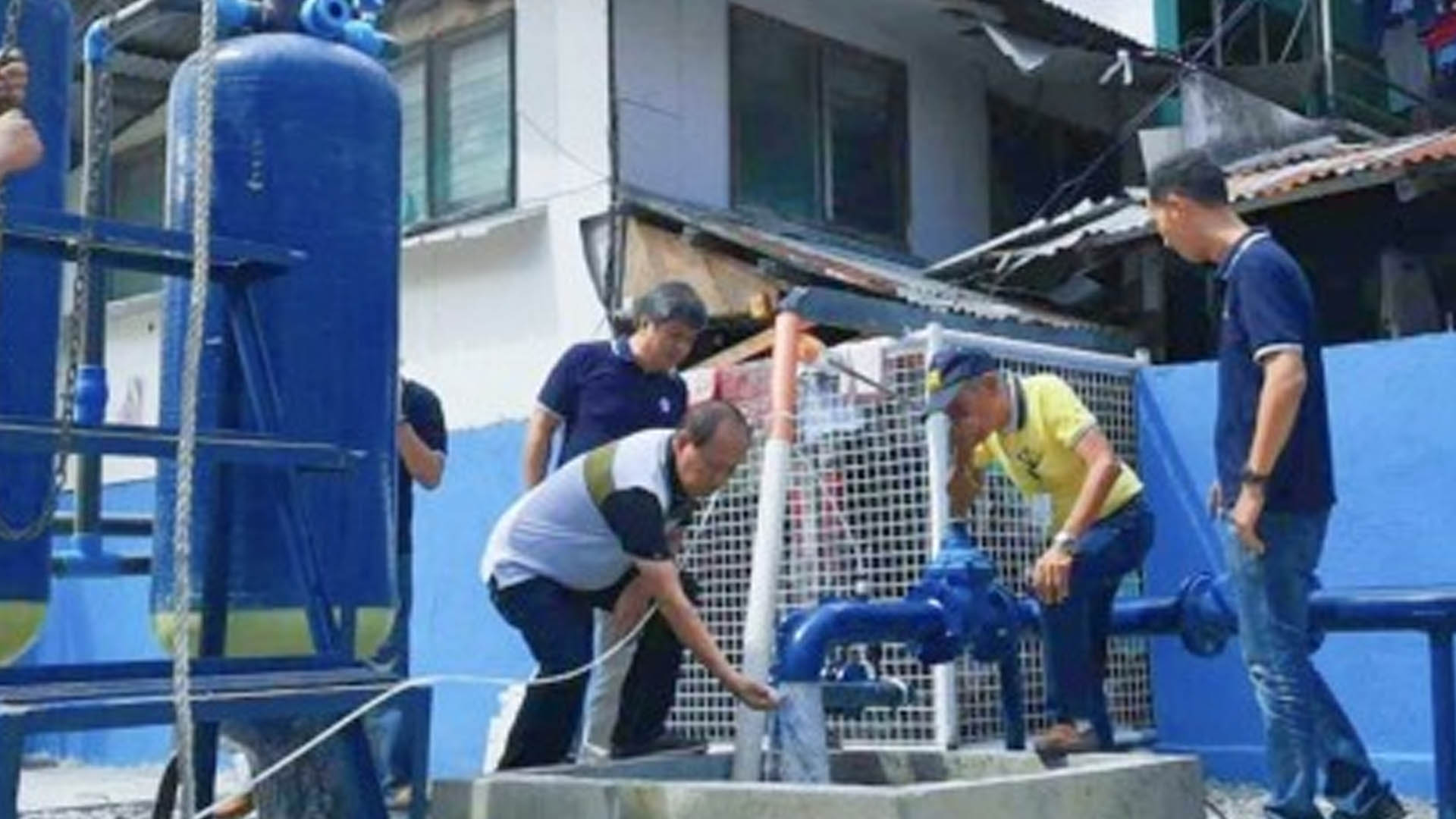To help address the crisis, the water district said it has successfully revived a well in Guadalupe village which was shut down some 15 years ago due to nitrate contamination.
Charmaine Kara, spokesperson of the Metropolitan Cebu Water District (MCWD), said the well was declared operational on Tuesday (Nov. 5), after it was ordered closed in 2004, along with eight other wells in the city because of high nitrate level found in its water.
In a statement, she said MCWD placed the Guadalupe well under a “denitrification program”. This microbial process was aimed at reducing nitrate and nitrite to gaseous forms of nitrogen to make the water safe for human consumption.
“It is a process of removing nitrate from contaminated water through Ion Exchange Resins. It started in 2018 and the first well where the water was treated was able to produce over 1,000 cubic meters per day. Nitrate contamination is caused by agricultural fertilizers and substandard septic tanks that overflow into water sources,” Kara said.
Stephen Yee, acting general manager of MCWD, said the water district management is expecting to give better service now that they have another operational well in the city.
“We hope this will provide longer service hours to our consumers in Guadalupe who have been inconvenienced by very short supply hours for years,” Yee said.
For several months before the well was reopened, residents in Guadalupe, which has the largest number of consumers in Cebu City, were complaining of water shortage.
Kara said the well in Guadalupe can produce 200 cubic meters per day for over 200 households.
While the water district is still observing the operation of the re-opened facility, Kara said the MCWD management is positive that the volume of water to be extracted in the Guadalupe well may increase next month.
Yee assured consumers they would continue working on the other 6 wells to help solve the shortage of water being experienced in the metro.
“This is the reason why MCWD has strengthened its Septage Management Program, which includes the mandatory desludging of septic tanks, proper collection, treatment and disposal of septic tank waste,” he added.
He explained that nitrate contamination, together with over extraction and saltwater intrusion contributed to the depletion and shut down of several sources in MCWD’s service area.
Also, he reported the plan of MCWD to drill 30 wells in a few months as part of short-term solutions to address water shortage.
The water demand in Metro Cebu is estimated at 500,000 cubic meters per day which is more than the water produced by MCWD at 238,000 cubic meters per day.
Among the factors of increased water demand is population growth, economic and business opportunities and in-migration over the years, the MCWD said. (PNA)









